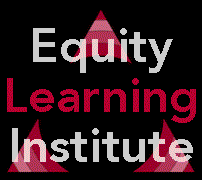 Home Home
 Teachers Corner Teachers Corner
 Workshops & Training Workshops & Training
 Equity Case Studies Equity Case Studies
 Awareness Activities Awareness Activities
 Equity Curriculum Equity Curriculum
 Equity Awareness Quizzes Equity Awareness Quizzes
 Printable Handouts Printable Handouts
 Research Room Research Room
 Humane Education Humane Education
 Social Justice Speeches Social Justice Speeches
 Social Justice Songs Social Justice Songs
 Social Justice Quotations Social Justice Quotations
 Multicultural Links Multicultural Links
 Contact Us Contact Us
 Receive Email Updates Receive Email Updates
 Awards & Recognition Awards & Recognition
 About Paul Gorski About Paul Gorski




|
 TAR Resources for Equity and Multicultural Education TAR Resources for Equity and Multicultural Education
 Stages of TAR for Equity and Multicultural Education
Stages of TAR for Equity and Multicultural Education
 TAR in Practice: An Illustration
TAR in Practice: An Illustration
 Initiating TAR in Your School
Initiating TAR in Your School
 Conceptualizing Teacher Action Research (TAR) Conceptualizing Teacher Action Research (TAR)
Teacher action research (TAR) is a method for educational practitioners to engage in the assessment and improvement of their own practice. It can be an individual tool, helping classroom teachers reconsider their teaching methods or to adapt in order to solve a problem. It can also be a community activity, helping teams of educators assess problems in schools, enact changes, and reassess. Although TAR looks different in every context, it is, in general:
- a non-traditional and community-based form of educational evaluation;
- carried out by educators, not outside researchers or evaluators;
- focused on improving teaching and learning, but also social and environmental factors that affect the nature and success of teaching and learning;
- formative, not summative--an on-going process of evaluation, recommendation, practice, reflection, and reevaluation; and
- change-oriented, and undertaken with the assumption that change is needed in a given context.
 TAR as a Tool for Equity and Multicultural Education TAR as a Tool for Equity and Multicultural Education
TAR can be a powerful tool for equity and multicultural education because:
- it engages the community in the evaluative effort and, as a result, gives the community ownership of and responsibility for change;
- it is public in nature, and provides a framework for public dialogue about existing concerns and possible solutions;
- it facilitates individual change and growth for the teacher-researchers;
- it is inherently critical and transformational--even if no school-wide change results, the educators are changed by conducting the research, and the school is changed by the change in the educators;
- research shows that teacher-researchers become more critical and reflective about their own practice; and
- it acknowledges that teachers are activists, whether we identify with that descriptor or not, and that our everyday actions and decisions play an important role in society and the lives of our students.
 TAR Links TAR Links
|




